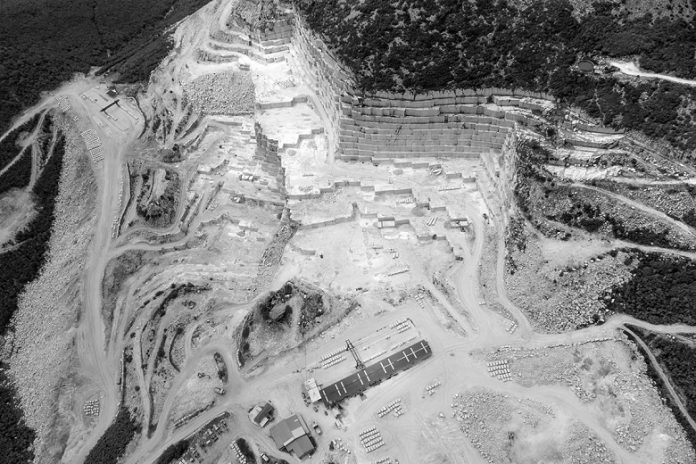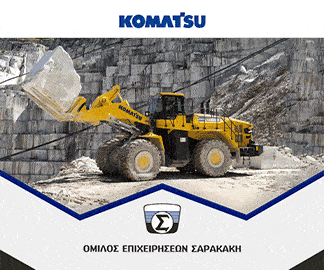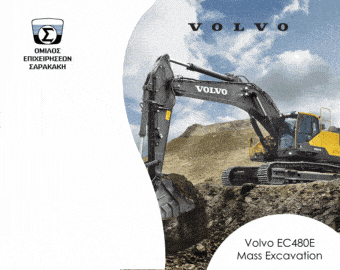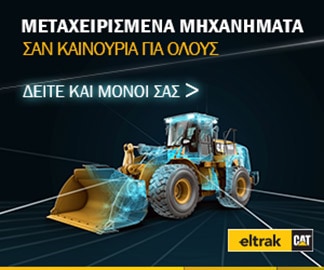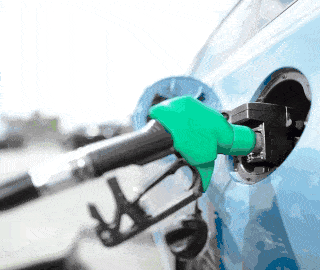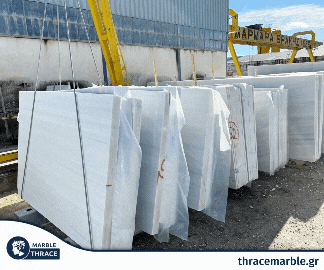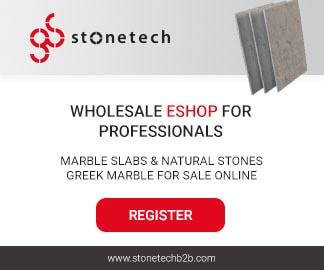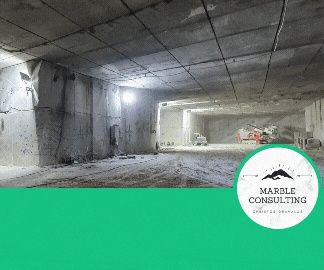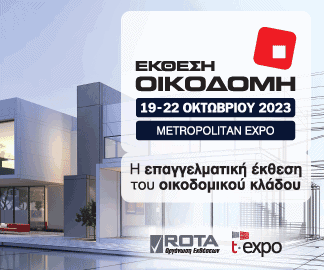From the tallest skyscraper in New York City to the headquarters of tech giant Huawei in China and from the four-storey Chanel store in Manhattan to Singapore’s South Beach Tower, the marbles used have something in common: the signature of the Greek marble industry “Pavlidis Granite – Marble SA”.
In the last eight years, the group has tripled its turnover, equity and operating profits and increased its employees from 300 to 950. At the same time it has acquired the largest quarries in the Balkans, thus becoming a global player, with overall production capacity of 400,000 tonnes of marble per year.
“Everything that is not moving gets lost”, says Mr Christopher Pavlidis, chief executive of the marble industry, explaining the reasons behind the group’s continued mobility, with investments of €32 million in marble sector during the decade 2010-2020 and €45 million in wind parks in Serres region in the two years 2020-2021, where a new 40 MW wind farm is expected to be connected to the network within the first half of the new year.
The same phrase explains the group’s persistence, which draws 9 out of total 10 million euros of its turnover from exports, in tracking the international market for growth opportunities: among other things, it is considering buying more quarries, not just in the Balkans, but all over Europe. The group already owns the largest holdings in Southeast Europe, with a total of 10 quarries, six in Greece and four in neighboring countries, including the dominant ones in Northern Macedonia (Sivec marble), Albania (Perla) and finally, Bulgaria (Vratza), where it recently acquired 100% of Dionyssomarble Bulgaria.
“Work it hard and you will succeed”
The best advice received by Christoforos Pavlidis was the one of the company’s founder, Euclides Pavlidis: “work hard and properly and you will succeed.” He adds that even in the most difficult times of the financial crisis in Greece, when many consultants suggested to the group the solutions of capital restructuring and relocation abroad, “this idea never came to our minds despite the privileges we would have in terms of taxes and bureaucracy. Our country is Greece and since we are part of its business world, we will do our best to improve its economic environment.”
A family “perversion” and the adventure of mining in Greece
He adds that, although services dominate in Greek GDP, Greece needs production: “We have a ” family perversion ” since our founding. Let’s focus on production, the primary sector, not services”, he says, adding that despite the enormous importance of the country’s mineral wealth and the fact that its subsoil is one of the richest in materials to meet all needs of industry worldwide, the effort to mining within borders is an adventure. “Due to the required procedures and bureaucracy, many companies have to initiate acquiring active quarries, as the licensing process in Greece can take up to five years. So, given the importance of time in business, I believe that such delays can be a deterrent. I insist that it is possible to review procedures and reduce the total time significantly, without jeopardizing the public interest or the environment”, says Mr Pavlidis.
Covid-19 and 2020 sizes
Meanwhile, the impact of the Covid-19 coronavirus pandemic could affect the group’s year-end figures, which closed its last year with a turnover of €120 million and operating profit (EBITDA) of €67 million. “The company’s performance over the last four years has been steadily rising, recording growth rates that even a high-tech company would envy. In 2020, due to the effects of Covid-19, and because economy is based on psychology, a recession is predicted to affect the results of the group. That is why there is no complacency. We strive to seize every opportunity by expanding our client base and penetrating other markets. The situation in the second half of the year is expected to be balanced, but it is impossible to predict the course of this year, as we do not know exactly the overall impact of the virus”, Mr Pavlidis mentions, stressing that soundly-based businesses will withstand the pressures.
The group sends 45% of its exports to Asian markets
With regard to the US-China trade war, two markets in which the group has a significant presence, he points out that any trading rivalry did not significantly affect the respective investment decisions of the group and “this is attributed to the fact that two of the materials we have (Ariston and Sivec marbles) are unique in their kind, so their demand is high above their production potential.”
Abroad “you don’t do shabby work”
When it comes to exports, the group seeks to maximize its comparative advantages in the already existing premium markets (North America, Europe, Gulf countries) with high value-added projects and materials, and on the other hand, to dynamically penetrate markets with low-cost markets (Latin America, North Africa), with a range of cheaper and more competitive materials.
“The factors contributing to the unlocking of demanding premium markets were clearly the credibility of the company, which is inherent in “Pavlidis” brand, both qualitatively and in the time of delivering a project”, notes Mr. Pavlidis.
“Abroad”, he adds, “there is no shabby work. We have developed multi-year partnerships with architectural firms that specify materials from the outset, such as Ariston and Sivec. Due to our good reputation and credibility, we were able to complete projects that at first were partially assigned to us. At the same time we have very strong links to markets like China and North America, which have been doing business for us for 20 years. We are not the cheapest, but we are very high quality.”
For the period 2010-2020, the group has invested €32 million in mining and processing equipment, of which €18 million in the last three years, with the aim of improving the volume production process and finished marble product. “Over the last three years, following a strategic choice, it has been decided and is being implemented – we are at the last stage – the gradual replacement of all cutting equipment (state-of-the-art marble slabs, grinding lines, etc.) and on-site processing, with the ultimate goal of upgrading the quality of products, the reduction in cost and the increase in finished-product sales to markets outside Asia.”
In business equilibrium. And in life …
Big credit exposure is a problem, but a bigger problem for business growth is often zero lending, right? “When I took over the company eight years ago, not only did it not have debt, but it had huge funds available. It was stable, but without a significant development plan. Balance is important both in life and in business. Overlending is not good, as there is no good in huge fund availability without growth. We leveraged the lending rationally and in a short term we made big and significant investments. Often in Greece – and not only here- we see debt-laden businesses and wealthy shareholders. In our case, we have a wealthy business and shareholders in good standing”, he says and concludes: “The only thing that stands out to me, professionally and personally, is that success is achieved first with vision, then with faith and finally with perseverance.”
Source: ana-mna.gr




